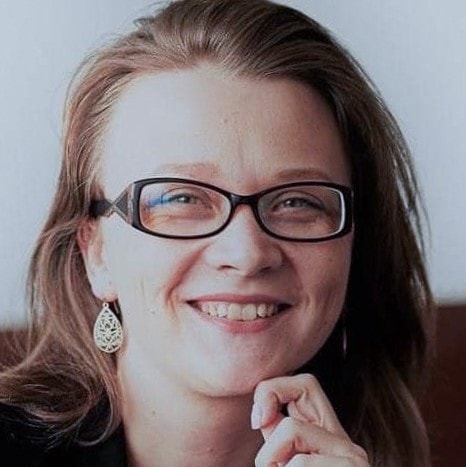Ukraine’s 'banking miracle': How its banking system keeps operating amid invasion

As Russia was preparing to invade Ukraine, experts feared that the Ukrainian banking system would collapse in the event of an all-out war.
The closure of Ukraine's main banks, cashless ATMs, and free fall of the national currency were expected by many.
Yet, the Ukrainian banking system proved the opposite, remaining functional two months into Russia's ongoing war.
“For everyone, it is just a miracle how Ukraine was able to keep the banking system alive and make it work during the war,” Ruslan Chernyi, the chief editor of Financial Club news outlet, told the Kyiv Independent.
He estimated that around 70% of bank branches continue to operate across the country. The rest cannot work due to their proximity to the war zones in the east and south. People can easily use online banking apps and non-cash payments without limits.
Banks do not have liquidity problems, according to Yevhen Dubogryz, an expert at the nonprofit CASE Ukraine think tank. Only four out of a total of 69 banks currently face significant liquidity risks, while another three have slightly higher risks due to the majority of their portfolio focusing on retail lending or operations in war-torn regions.
And for the next six months, no changes are expected in this aspect.
"Banks have enough resources to keep cash outflow even in the worst-case scenarios," said Dubogryz during an online webinar.
In March, Ukraine’s international reserves grew by 2% to $28.1 billion, mainly due to the tranches from the International Monetary Fund, the World Bank, and the EU.
And the tendency may persist.
“The dynamics of filling the reserves should be the same,” Pervin Dadashova, director of the central bank’s financial stability department, told the Kyiv Independent.
At the same time, the chances of restoring the pre-war scale of earnings in the banking sector are decreasing daily.
“If the war continues at a similar pace, the banks will start to close at some point,” said Chernyi.
Right decisions
Two key factors played a vital role in Ukraine’s “banking miracle” – effective central bank policies and a major clean-up of the system launched after the 2014 economic crisis, which too was sparked by Russia's illegal occupation of Crimea and invasion of the Donbas.
Nearly 100 insolvent Ukrainian banks were liquidated, while some were nationalized, like the country's largest PrivatBank, previously owned by oligarchs Ihor Kolomoisky and Hennady Boholyubov.
The Covid-19 pandemic also helped Ukraine's banking sector, speeding up digitalization and normalizing remote work, according to Dadashova.
On Feb. 24, when Russia started an all-out invasion, the National Bank had a concrete plan on how to act.
The Bank immediately froze the exchange rate of the national currency – 29.25 hryvnias for one U.S. dollar. It also banned the online purchase and sale of foreign currency by banks to individuals.
“It became clear very fast that there would be no foreign exchange earnings coming to Ukraine. It would affect the stability of the (financial) market,” said Dadashova.
On April 14, the central bank eased the ban and allowed banks to sale foreign currency in cash to people. The move was made to reduce illegal exchange points across the country and secure exchange operations for citizens.
Additionally, quick refinancing and a ban on foreign exchange transactions eased pressure on the hryvnia, according to the report by the Center for Economic Strategies.
In addition, each bank, as part of the country’s critical infrastructure, had a list of essential workers who couldn't be conscripted for military service for the next six months.
“The banks proved to be stable and reacted quickly,” said Chernyi, adding that most banks were able to move their staff and documentation to safer locations. “They made sure the banks kept working.”
The National Bank put a lot of pressure on banks to operate via cashless payments, excluding a number of risks, as the possible attacks on the banks' premises.
Moving into cloud technologies has helped banks save time and money, for example, when they had to move their servers to a new place.
Despite ongoing cyberattacks, Dadashova says banks did not lose any critical data about their assets and the number of loans issued.
Threat to business
However, the situation is obviously far from ideal, with problems pilling up as the war progresses.
According to the Ukrainian Union of Entrepreneurs, up to 70% of businesses have already stopped operating. This dramatically increased the level of non-performing loans. Currently, the non-payments on loans range from 40% to 80% in different banks, according to Chernyi.
On the other hand, as banks revenues plummeted, banks began to cut back on lending to businesses.
Agricultural companies complained in early March about not having access to loans they required to purchase the seeds for the sowing campaign, according to Andriy Dykun, head of the All-Ukrainian Agricultural Council.
On March 17, President Volodymyr Zelensky announced a zero interest rate for loans of up to $2 million for businesses under the government's 5-7-9% lending program for the period of martial law.
However, after a month, enterprises, especially small and medium-sized, are complaining en masse. They still can’t take loans, according to Economy Minister Yulia Svyridenko.
“Banks are reluctant to respond to emerging problems,” she said in an interview with Forbes.
While almost 1,400 loans totaling $127 million had been issued to enterprises under the program as of mid-April, most of them were focused on three sectors – agrarian, food production, and pharmaceuticals – as they were prioritized by the state.
According to Svyridenko, banks have even unofficially divided Ukraine into several colored zones of “investment security.”
The red zone, for instance, means zero chances for business to get a loan due to the proximity of the front line, while the green one will indicate a relatively safe region, like western Ukraine.
At the same time, although many banks have introduced payment holidays for both individuals and businesses, and the law now bans any penalties, the risk that banks could be on the verge of bankruptcy is high.
Defaults and the inability to repay debts may continue even after the war ends. “At least half of the banks may be liquidated after the war,” said Chernyi.
However, the National Bank’s top officials are trying to calm those expecting turmoil.
“It’s not right to say there's a high risk of a mass withdrawal of banks from the market due to the war,” said Dadashova, stating that the National Bank is ready to overcome the potential crisis.
“Everyone is in the same boat and everyone is interested in the same goal," she says, adding that a healthy banking sector is vital for the recovery of the country's economy.









